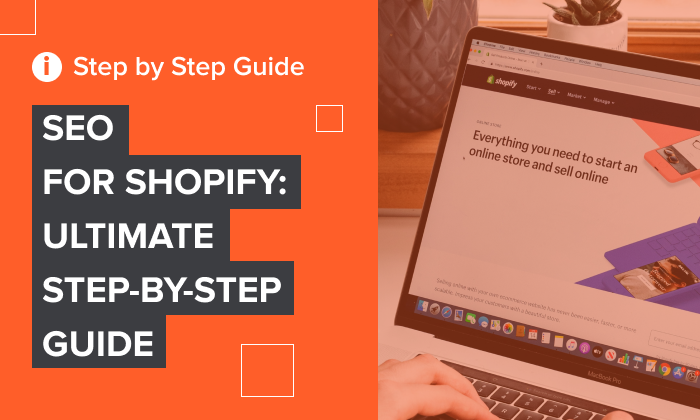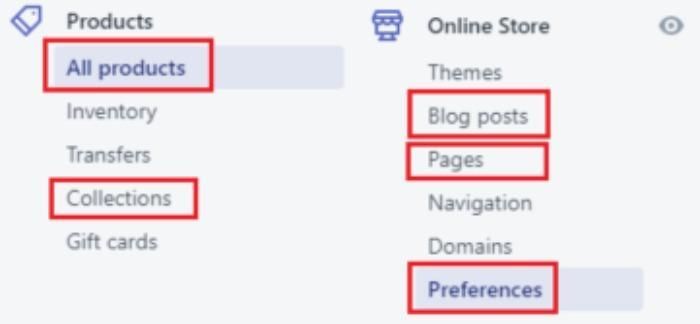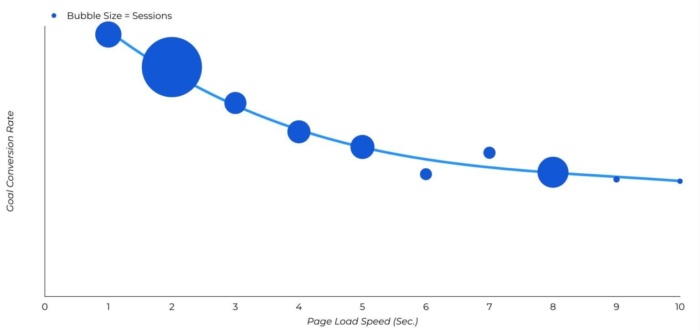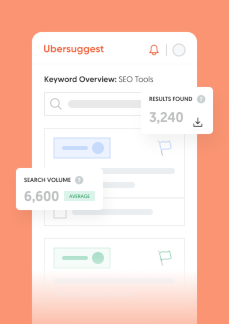
I think it’s fair to say that Shopify is one of the best e-commerce platforms. You don’t have to take my word for it. Just look at the stats.
Shopify powers many small businesses. There are over two million Shopify stores globally, and it’s grown by 201.53% in recent years. High-profile companies have put their confidence in it, too, with the likes of Tesla and Pepsi both using Shopify to get and keep them online.
However, whichever e-commerce platform you choose, there’s more to it than creating your content and pressing ‘publish.’ You need to understand how SEO for Shopify works and the best way to implement it.
In this Shopify SEO guide, I show why the platform is a good fit, highlight some of its features, and describe some tools to help you get more from your store.
Why Should You Invest In SEO For Shopify?
SEO is important for any business with an online presence, but it’s essential for e-commerce businesses. That’s because SEO can help you get more traffic to your website, and once you’ve got visitors flocking to your store, you’ve got more opportunities to nurture and convert them into loyal customers.
Now that should be reason enough. However, If you’re still not convinced that the effort is worthwhile, here are a few more advantages to SEO optimization for Shopify that may change your mind.
SEO:
- can help you rank higher in search results, which means more people see your products
- attracts targeted traffic, meaning visitors are more likely to buy from your site
- helps you build trust and credibility with potential customers by enabling them to find your website easily
- allows you to target keywords to get you in front of your ideal audience
Finally, if you want some more motivation to consider Shopify, it does give you plenty of control over your content and structure, allowing you to integrate your chosen keywords and phrases.
However, Shopify’s downside is that it gives you less control over areas like design and coding. On the plus side, though, the platform uses SEO best practices and keeps up-to-date with Google’s latest guidelines.
What Features Does Shopify Have To Support SEO?
In addition to being search engine friendly, Shopify offers a host of built-in SEO features such as:
- automatic sitemaps and XML sitemaps
- ability to edit your store’s URL structure.
- URL optimization
- meta tags support
- Canonical tags
- SSL certification
- structured data
- mobile friendly
- auto-generated robot txt file ( a text file that helps to instruct web spiders)
- 301 redirects
Using these features can improve visibility and bring you more traffic and leads, which could turn into customers.
Additionally, Shopify offers an app store packed full of useful Shopify apps to assist with various aspects of SEO, like keyword research, link building, and analytics. One more thing: Shopify has a blog that provides detailed articles on optimizing your site for better search engine ranking, as well as a host of other topics.

How To Improve SEO For Your Shopify Pages
If you’re running a store, you’re probably always looking for ways to improve your rankings and get more traffic. Below are some tips for Shopify SEO optimization to get those prospects visiting your site:
- First, one of the most important things you can do to improve your Shopify SEO is to choose relevant keywords and include them throughout your content.
- Another great way to optimize your Shopify store is to create quality content. Content is essential when it comes to SEO, so make sure that all of the pages on your website/blogs are well-written and informative and make your content a core part of your e-commerce content marketing strategy for Shopify.
- Use a Shopify review app to build authority, like Shopify Reviews or Yotpo.
- Choose the best Shopify theme for SEO. Features to look out for include compatibility, speed, mobile friendliness, clear navigation, and some customization.
- After you’ve designed your website, register it with the Google Search Console and Bing Webmaster tools to get your website indexed.
Next, Shopify has these SEO tips:
- Edit your robots.txt.liquid. Shopify has a template that lets you enable or stop pages from getting crawled, block chosen crawlers, add extra site crawlers, and add crawl delay rules for selected crawlers.
- Add your keywords: There are any number of keyword tools you can use, but Ubersuggest is free and has an extensive list of features. When you’ve narrowed down your keywords, add them to your titles, descriptions, content, and ALT text. You can also include them in your URLs.
- Optimize your site structure for the search engines. As part of its SEO best practices, Shopify has various built-in elements, including a logical hierarchy of categories for content. URLs come with an easy-to-understand structure and have standard characters, and pages don’t have iframes.
- Submit your sitemap: Shopify autogenerates a sitemap.xml file, which is in the root directory of your Shopify domain store.
- Use descriptive file names for images, both to make your site more accessible and give Google more context for them.
- Strategically place internal links to relevant pages.
- Optimize your store navigation by checking the site menu is clear, using search functionality, labeling categories and menus, and making essential links prominent. All of this ensures visitors can find what they’re looking for with ease.
There are other methods to enhance your Shopify store for SEO, but these are a bit more complex to break down. Read on to get deeper into building out your Shopify SEO.
1: Avoid Duplicate Pages and Content
The duplicate page issue is common among e-commerce sites. Shopify’s ‘collections’ feature organizes your products into easy-to-view categories, but it also means that Shopify adds an extra URL. What does that do for your Shopify SEO?
Well, it means the search engines may index the wrong page. However, there are some simple answers to duplicate pages, like canonical tags and redirections. However, there may also be other duplication issues from your website’s product pages or other content.
Many fear Google penalties for duplications, but that shouldn’t be a major concern. The original line from Google is that it won’t penalize your site for innocent duplication. Nevertheless, it can cause other issues, like a lack of link equity, and search engines may struggle to consolidate link metrics.
To find duplicate content, use one of the following tools, you can use:
- Semrush (for domain duplication)
- Siteliner
- Screaming Frog
If you run a check with the SEO Spider on Screaming Frog, you can find exact and near duplicates. Then you can remove duplicate content by using canonical tags, redirects, or setting up parameters in Google’s search console.
2: Choose Keywords That Make Sense For Your Audience
With keywords, think about what terms your target customers are likely to use when searching for your products. What would they type into a search engine? Make a list of these potential keywords and phrases.
Once you have a list of possible keywords, it’s time to start thinking about which ones will be most effective for your Shopify store. You also need to consider:
- the competition for each keyword
- how relevant it is to your products and target audience.
- keywords that are most likely to result in conversions
There are several tools you can use for your keyword research, including:
- Ubersuggest
- Ahrefs
- Google Search Console
You can then integrate keywords throughout your site.
3: Optimize Your Metadata
Metadata is one of the most important aspects of SEO for Shopify. Optimizing your metadata ensures that your store appears higher in search results and attracts more organic traffic.
A few key things to keep in mind when optimizing your metadata include:
1. Use keywords judiciously. Don’t stuff your keywords into your titles and descriptions; it hurts your SEO. Instead, use them sparingly to ensure that they are relevant to what customers are searching for, and add your most important keywords first.
2. Keep your titles and descriptions clear and concise. Long, rambling titles and descriptions are confusing and won’t help you rank higher in search results. Stick to the point and be as clear as possible.
3. Use 50-160 characters.
4. Write actionable meta descriptions. What do you want your visitor to do? Tell them.
5. When you’re ready to add or edit your Shopify metatags, go to Shopify admin, and find the ‘Products and online stores’ menu. Go to ‘all products’, select the item to optimize, and fill out the description.

4: Make Sure Your Pages Load Quickly
In today’s fast-paced world, people are used to getting what they want fast. Your website needs to load quickly and efficiently to keep users happy.
Research from Portent shows site speed is improving to an extent; 86 percent of pages Portent measured load within five seconds or less, compared with 81 percent of pages in 2019.
When comparing ultra-fast loading times with moderately quick sites, there is a significant difference in e-commerce conversions; speedier sides loading within one second have 2.5 higher conversion rates than sites taking five seconds.

Luckily, you can do a few things to make sure your pages load quickly, even on slower connections, including:
- Optimizing your images. These are often the biggest files on a website, slowing down loading times.
- Keeping your website’s code clean and well-organized. Messy code can slow down loading times, so taking the time to streamline your code can make a big difference.
- Minify the HTML, CSS, and JavaScript code on the site. This means removing unnecessary characters and code from the files to make them smaller and simpler.
- Use a reliable web host with high speeds.
- Disable apps and theme features that may slow your site down
5: Don’t Neglect User Experience
If you’re running an online store, you can’t afford to neglect your users’ experience (UX). A bad user experience can drive customers away and hurt your business.
Part of a positive user experience involves ease of navigation. Not only does straightforward navigation improve the UX, but it can also aid SEO for Shopify sites by ensuring shoppers on various devices can view your pages properly.
Here’s an excellent example of what good navigation looks like:

Aside from simple product selection and limited options, you can also:
- make sure your menus are clear and easy to understand.
- use drop-down menus to help customers narrow down their options.
- use breadcrumbs (to show the path a user has taken through the site, from the home page to the product page).
- include a search bar so customers can easily find what they’re looking for.
Now, let’s look at Shopify’s blog feature.
6: Take Advantage of the Shopify Blog Function
If you have a Shopify store, you should take advantage of the blog function. It’s a great way to drive traffic to your store and improve your SEO. Here are some tips on optimizing your Shopify blog for SEO:
1. Use keyword-rich titles, descriptions, and URLs.
Make sure your blog posts have catchy titles that include relevant keywords. Your descriptions and URLs should also be keyword-rich but also engaging and informative.
2. Use images and videos.
Images and videos can help break up your text and make your content more visually appealing. They can also help improve your SEO by increasing your chances of appearing in image and video search results.
3. Promote your content on social media. Ensure you promote your latest blog post on social media sites like Twitter, Facebook, and Instagram.
4. Create informative content. If you want an example, look no further than beardbrand.com. In addition to providing style tips, the blog covers how to posts, trends, and beard care. In other words, the kind of content people can learn from and want to see more of.

Now you’ve got some tips for a great Shopify blog; what about some SEO tools?
7: Consider SEO Tools For Shopify
When it comes to driving traffic to your Shopify store, there’s no doubt that SEO is a powerful tool. However, with so many different options out there, how do you know which tools are right for your business?
Begin by asking yourself these questions:
1. What are your goals?
Before looking at different SEO tools, you must clearly understand what you want to achieve. Do you want to increase traffic from specific countries or regions? Or improve your ranking for certain keywords? Once you know your goals, you can narrow down your search for the perfect tool.
2. What budget do you have?
Free and paid SEO tools are available, so it’s important to consider your budget before making any decisions. Some tools to keep in mind are:
- Tiny IMG SEO Image Optimizer
- SEO HTML Sitemap
- SEO JSON‑LD Boost by Verge
With that said, whether you are looking at these or any other tools, be sure to review the features and compatibility to make sure they align with your current site’s capabilities and needs.
FAQs
Is Shopify Good For SEO?
Shopify is generally considered good for SEO due to its clean coding and organized structure. Additionally, Shopify offers plenty of features to help you optimize your Shopify site for SEO. For example, you can add alt text to images, create custom titles and descriptions, and more.
How Do You Do SEO For a Shopify Store?
Start by ensuring that your website is well-structured and easy to navigate to help search engines index your site more efficiently and improve your chances of ranking high in results pages.
Use relevant keywords throughout your website, including titles, product descriptions, and blog posts. Research which keywords are most likely to bring traffic to your site and focus on using them throughout your content.
Ensure your website is mobile-friendly as more and more people are using mobile devices to access the internet.
Can You Integrate Plugins to Help With SEO Optimization On Shopify?
Yes, you can integrate plugins to help with SEO optimization on Shopify. Several great plugins can help you improve your shop’s ranking in search engine results pages (SERPs), including Yoast for Shopify, All in One SEO Pack for Shopify, and EZSEO for Shopify.
Do Shopify Pages Load Fast?
Shopify’s states that it takes longer the first time users load a page. However, pages are cached after that, making for quicker loading times. Shopify also uses efficient servers and provides a speed report to see how your site compares with other users.
However, according to research from Littledata.io, Shopify takes an average time of 4.2 seconds for a full mobile page to load.
Conclusion
Optimizing your Shopify site for SEO is a process that requires ongoing effort. However, the rewards are worth it, as the efforts you put in can deliver you more traffic and conversions over time.
By following the tips in this article, like speeding up your site, avoiding duplicate content, and optimizing your Shopify SEO, you can start to see improvements.
You can also delete unnecessary apps and unused theme elements to increase speeds and optimize your content with keywords for target traffic.
How do you implement SEO for Shopify on your website?

See How My Agency Can Drive More Traffic to Your Website
- SEO - unlock more SEO traffic. See real results.
- Content Marketing - our team creates epic content that will get shared, get links, and attract traffic.
- Paid Media - effective paid strategies with clear ROI.

Unlock Thousands of Keywords with Ubersuggest
Ready to Outrank Your Competitors?
- Find long-tail keywords with High ROI
- Find 1000s of keywords instantly
- Turn searches into visits and conversions
Free keyword research tool
